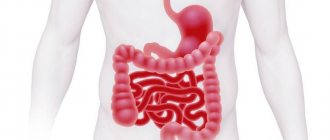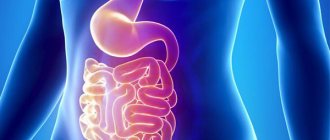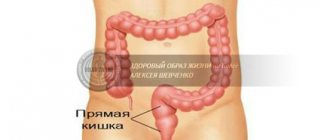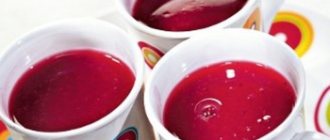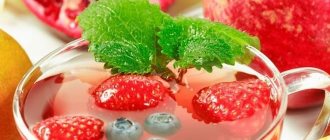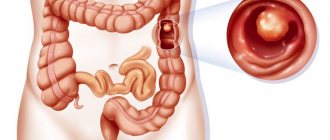The importance of diet
Dietary nutrition for IBS is considered part of a combination treatment. Since it is not a disease as such, but represents only a specific symptom complex associated with intestinal dysfunction of an organic nature, when drawing up a therapeutic diet, a specialist must determine the triggering mechanisms of the pathological disorder.
The diet for IBS is selected for each patient in accordance with his individual characteristics, and taking into account taste preferences. Here it is important to take into account the clinical manifestations of the syndrome: constipation, diarrhea, flatulence, pain.
A specially selected program is aimed at solving problems such as:
- elimination of the main symptoms;
- restoration of metabolism;
- increased regeneration of mucosal epithelial cells;
- normalization of motility of the gastrointestinal tract;
- replenishment of energy deficiency due to the supply of nutrients.
Prevention of exacerbation of the syndrome
- Compliance with general nutritional recommendations;
- Adherence to a diet, complete exclusion of intolerant foods;
- Avoiding on-the-go snacks, fast food, alcoholic beverages, and smoking;
- Use of natural products in cooking;
- Eating warm food, avoiding excessively hot or cold foods;
- Regular visits to a gastroenterologist;
- Taking prescribed medications.
We invite you to watch a detailed video on the topic
General principles
It is common for any person to enjoy eating, however, nutrition for irritable bowel syndrome must be adjusted so that harmful foods are used to a minimum, or are limited completely, and healthy and healthy foods predominate. The program is aimed at the gradual restoration of gastrointestinal functions, so the basis of dietary nutrition should be dishes containing a sufficient amount of useful substances. The patient is advised to follow its basic provisions.
Eating
As practice shows, nutrition for IBS is characterized by regularity, relative frequency and moderation. Eating food occurs strictly 4-6 times in limited portions, and with thorough chewing. Dishes need to be either boiled or steamed. It is especially important to observe the time interval (3 hours) and not skip the next meal. To do this, you can use an alarm clock. The last dose is indicated 2-3 hours before a night's rest, and you should choose light protein meals.
Fluid intake
Drinking regime is important to observe in everyday life, and especially with IBS. During the course, it is recommended to drink at least 1.5-2 liters of water. It is allowed to take a decoction of rose hips, green and black teas with the addition of honey.
Carbonated drinks and alcohol are strictly prohibited.
Normalization of lifestyle
It is necessary to change your attitude towards yourself, remain calm, and avoid stressful conditions. The intestines are very sensitive to changes in the emotional background, therefore, during nervous and mental overloads, failure occurs in the digestive system. Taking sedatives prescribed by a doctor will help restore the functioning of the central nervous system. You should also intensify your rhythm of life by starting to play sports.
Journaling
This point is important for identifying factors that provoke the development of IBS. The diary should not only carefully record all the dishes consumed during the day, but also display the body’s reactions to the food eaten. This will help determine which foods irritate and cause aggravation, and adjust the sample menu. The diary should be shown to the doctor, as it will help clarify the picture of the disease. You need to make notes a few hours after eating.
Diet for IBS with severe pain
Diet number 3 is recommended. The diet should not contain carbonated drinks, dairy products, or bread with bran.
Doctors recommend dishes with proteins: meat, fish with added oil. Cold soups are especially useful. Regarding porridges, we can say that for IBS of this variety, only pearl barley and buckwheat are allowed. You can eat one hard-boiled egg. Honey and mild sauces are allowed.
For the duration of treatment, forget about chocolate, coffee, black tea, flour products, and jelly. Dishes are eaten cold.
For constipation and severe pain, eat boiled vegetables in grated form. Grind the dishes before eating. If pain symptoms are combined with flatulence, then forget about some fruits and vegetables. To improve intestinal permeability, eat prunes, dried apricots, beets, and fresh juices from vegetables and fruits.
And if the syndrome occurs not only with pain, but also with loose stools, then forget about the foods that lead to such symptoms. Take food in small portions, divided into 6 times a day.
https://youtu.be/OdHQZiIR7U4
Authorized Products
The diet for IBS is not overly strict. Since the restrictions are not critical, the patient has the opportunity to enjoy the permitted dishes, which are quite varied. This list includes the following set.
- Lenten soups with meatballs, double minced meat or vegetables.
- Quenelles, meatballs.
- Carefully prepared side dishes, additions to the first courses of their cereal products. The exceptions are pearl barley, buckwheat, and wheat.
- Vegetables that do not cause bloating They can be added to soups, stews, casseroles, and cutlets can be prepared from them.
- Omelettes or fried eggs.
- Bread bought the day before, crackers, cookies.
- Milk and cream should sometimes be added to soups, porridges, and stewed vegetables.
- Fermented milk products are the basis of the diet, however, only those types that are well tolerated by the body are allowed. It is useful to add low-fat cottage cheese and products based on it to your daily diet.
- Butter is only for sandwiches or the base of dishes.
- Ripe berries - raspberries, strawberries, and fruits - apples, pears. Eat baked, steamed, when they become soft.
- Diluted natural juices, weak tea, rosehip decoction.
Simple recipes
Recipes for preparing simple and healthy dishes for irritable bowel syndrome:
- Bouillon. To prepare it, you will need lean meat - chicken or vegetables (for preparing vegetable broth). Rinse the meat or vegetables well, add water and place on medium heat. In order for the chicken broth to turn out beautiful and transparent during cooking, do not allow it to boil strongly. When the meat or vegetables are cooked, the broth must be strained;
- Baked fish with vegetables. You need to take low-fat varieties of fish (for example, pink salmon), carrots, onions, salt, sour cream. The fish needs to be cleaned, washed well and cut into pieces. Place it on a baking sheet lined with foil and salt it. Grated carrots and diced onions are placed on top of the fish. Pour sour cream on top, cover with foil and bake in the oven until cooked (at 180° for about 40 minutes);
- Salad with carrots and prunes. Carrots must be washed and peeled. It needs to be grated on a coarse grater. Prunes are washed well and cut into cubes. Mix carrots, prunes and vegetable oil;
- Fruit salad. To prepare it, you can take those fruits that are allowed for a particular person. You need to take an apple, banana, pear. The fruits must be washed and peeled, and then cut into cubes. Mix all the fruits and place in a mold or bowl. The salad is seasoned with natural yogurt and can be eaten.
Any recipe can be adapted to the individual tastes of the patient by replacing one ingredient with another.
Irritable bowel syndrome (IBS) is a functional disorder that is accompanied by flatulence, constipation or diarrhea, and discomfort. Another characteristic sign of irritable bowel syndrome is pain. Treatment of such a pathology necessarily includes a diet that is aimed at improving digestion.
Prohibited Products
Unpleasant manifestations of IBS often appear due to poor diet. For example, in case of IBS with flatulence, allowed foods can contribute to the normal digestion process without causing bloating, gas, or excessive stool volume. The mixed type of pathology suggests limiting dishes that provoke the appearance of specific symptoms. There is a group of products that are not recommended by some experts for consumption, regardless of the type of IBS.
- vegetables with a characteristic taste and aroma;
- spicy, fatty foods, sauces, spices, including horseradish, pepper;
- pickles, marinades, canned fish, sausages.
It is contraindicated to use meat, poultry with excessive fat content, and certain types of cereals - pearl barley, wheat and corn. The following should be excluded from the menu for urticaria:
- chocolate, biscuits, baked goods;
- fruits that have a sour taste;
- legumes;
- fried meat dishes;
- salted fish.
A special category includes food allergens - preservatives and dyes that negatively affect the gastrointestinal tract and internal organs, lactose, which is the cause of its deficiency.
Diet for IBS with constipation
Constipation, which leads to the accumulation of feces in the intestines, leads to pain when the organ is irritated. The diet prescribed for IBS with difficult stool consists of foods that speed up intestinal motility. Plant foods do this well. To obtain a stable laxative effect, it is necessary to heat treat the products.
Bran, dried fruits and compotes based on them, Hercules porridge, fermented milk products, especially kefir are recommended.
Foods that inhibit colon motility are prohibited: baked goods, rice, chocolate, coffee, strong tea.
Approximate menu option
You can develop a sample menu yourself without the help of a specialist. It is enough to take into account the list of products that are allowed or, conversely, limited, as well as the approximate diet offered below.
| Breakfast |
|
| Lunch |
|
| Dinner |
|
| Afternoon snack |
|
| Dinner |
|
| For the night |
|
Sample menu for 5 days
By adding herbs, various sauces and other bright ingredients, boring steamed cutlets will help create a festive mood
For ease of preparation and ease of adherence to the dietary regime for irritable bowel syndrome, you can prepare only the first and second, dividing the dishes into several meals and supplementing them with simple food ingredients. Days can be swapped, making sure to exclude food components from the list of harmful foods. A sample menu looks like this:
Day 1
Breakfast: steam omelette with peeled tomatoes, green tea with crackers.
Lunch: boiled beet salad with prunes, chicken broth with onions and croutons, chicken pilaf.
Afternoon snack: zucchini casserole with rice and cheese.
Dinner: stewed vegetables, crackers, jelly.
Day 2
Breakfast: boiled barley porridge, decoction of rose hips with honey, crackers.
Lunch: meatless beetroot soup with herbs and sour cream, fresh cucumber salad with sour cream, mashed potatoes and beef meatballs.
Afternoon snack: thick jelly with crackers, baked apple with honey and pine nuts. Dinner: stewed vegetables with meat in a pot, fresh herb salad with vegetable oil and a glass of kefir.
Day 3
Breakfast: sandwich with lettuce and chopped ham (on toasted bread), green tea with milk.
Lunch: pureed pumpkin soup with cream and celery, chicken salad with prunes and homemade mayonnaise, boiled buckwheat with chicken cutlet.
Afternoon snack: baked apple and thick jelly.
Dinner: boiled buckwheat with chicken cutlet in cream sauce.
Day 4
Breakfast: pearl barley porridge with butter and vegetables, green tea with milk without sugar, biscuits.
Lunch: rice and beef soup with herbs, prune salad with boiled beets, mashed potatoes with baked pink salmon.
Afternoon snack: zucchini casserole with cheese, rosehip decoction.
Dinner: chicken pilaf, crackers, linden tea with lemon.
Nutritional Features
Taking into account the clinical manifestations of the pathology, therapeutic nutrition requires adjustment.
An individual approach to creating the right diet, which should be correlated with the severity of symptoms and the type of disorder, will help increase the effectiveness of therapy.
For IBS with bloating
The diet for irritable bowel syndrome with flatulence should have a calming effect, reducing motility, but preventing the formation of constipation. It is preferable to steam the products or boil them in a small amount of water. They should enrich the body with energy and not lose nutritional components.
Basic recommendations
The menu for irritable bowel syndrome with flatulence should include:
- pureed or slimy soups;
- vegetables lightly poached in water;
- products capable of enveloping and fixing - blueberries, pomegranate, quince, pears, lingonberries;
- fresh berries and some types of fruit;
- bread and crackers bought the day before;
- finely chopped main courses;
- drinking plenty of fluids.
Some restrictions
To prevent the possibility of bloating, you should exclude irritating foods from your daily menu:
- peas, chickpeas, beans;
- radishes, all varieties of cabbage;
- nuts and dried fruits;
- baked goods, soda;
- fish and meat containing large amounts of fat.
For IBS with constipation
Constant and prolonged delays in defecation are associated with impaired intestinal motility. To start the contraction mechanism, it is important to pay special attention to nutrition. To activate motor skills, table No. 3 and some specific substances will help:
- Sahara;
- bile;
- carbon dioxide;
- hypertonic salt solutions;
- cellulose.
Features of diet No. 3 are the exclusion of foods that cause irritation to the damaged organ and the appointment of dishes that have a laxative effect. It is important to cook food only by steaming.
Recommended Products
The diet for IBS with regular constipation has some peculiarities, so you need to follow these recommendations.
- Limit the consumption of foods rich in carbohydrates - pasta, semolina, wheat bread, replacing it with rye or bran.
- Use vegetable oil as a component of cooking or salad dressing.
- Make lean fish, meat or poultry the basis of your daily diet, alternating them with each other.
- Take at least two liters of liquid. This volume includes juices, water, tea, infusions or decoctions.
- Give preference to partially chopped foods, baked vegetables, and fruits.
- Eat prune muesli, dried apricots, herbs, and water porridge.
Sources of fiber
Plant fiber helps increase fecal mass and accelerates its movement through the intestinal tract. This is relevant in the case of situational constipation and IBS. Therefore, it is recommended to consume foods that are sources of this component. What you can eat if you have irritable bowel syndrome:
- Cereals and their derivatives – hulled barley, whole grain bread, pasta or cookies.
- Legumes - green peas, beans, chickpeas, lentils.
- Fruits – dried figs, apple, pear (without peel), kiwi, raspberries.
- Vegetables – fennel, leeks, artichokes, eggplant, redicchio salad.
For IBS accompanied by pain
The correct diet for irritable bowel pain with pain syndrome is based on the principle of calculating the calorie content of foods and limiting the category that provokes an exacerbation of the pathology. The cause of pain is the excessive activity of the sigmoid colon, so there is a need for a gentle diet. As in other cases, it should be frequent, fractional, consist of 5-6 doses, and the weight of a single serving should not exceed 200 g.
Recommendations from experts
To eliminate spasms and pain, you must follow the recommendations of experts who advise what you can eat and what you should limit. Allowed:
- eat only warm pureed dishes;
- vegetables after heat treatment;
- soft-boiled eggs;
- stewed meat or fish;
- vegetable or butter;
- porridge made from buckwheat, barley or pearl barley;
- neutral snacks, sauces;
- honey, marmalade;
- still drinks, weak tea, diluted natural juices.
Should abstain
In case of a syndrome that is accompanied by pain and spasms of the intestines, the following should be removed from the diet:
- sweet soda;
- whole grain bread;
- fermented milk products;
- vegetables and fruits that cause increased gas formation.
Irritable bowel syndrome is not considered a health threatening condition. Each type of pathology imposes requirements and an individual approach to the choice of treatment strategy. However, to eliminate it, you need to avoid stressful situations, adhere to the doctor’s advice, daily routine and therapeutic diet.
What not to eat if you have irritable bowel syndrome
Diet for irritable bowels completely excludes foods that stimulate secretion, as this causes increased flatulence and pain in irritable bowels. So, the diet prohibits the consumption of the following foods:
- strong and fatty meat or fish broths;
- spicy dishes;
- fatty meats and poultry;
- hot sauces;
- cooking fat;
- pearl barley, barley, corn, semolina, wheat cereals;
- chocolate;
- ice cream;
- cakes;
- cabbage and grape juices;
- carbonated fruit drinks;
- cold drinks;
- vegetables containing irritating essential oils, including garlic, radish, onion, spinach, celery, radish;
- smoked meats;
- products that enhance fermentation in the intestines, such as legumes, kvass, fresh baked goods, rye bread, wholemeal flour, carbonated water;
- horseradish, pepper, mustard;
- canned food;
- dogwood, quince;
- fried eggs;
- alcohol.
- Shellac remover - manicure at home. Review of the best shellac removers
- Abdominal vacuum is an exercise for weight loss. How to properly do a stomach vacuum at home
- Signs of pneumonia in an adult
Do you still think that healing your stomach and intestines is difficult?
Judging by the fact that you are now reading these lines, victory in the fight against diseases of the gastrointestinal tract is not yet on your side...
Have you already thought about surgery? This is understandable, because the stomach is a very important organ, and its proper functioning is the key to health and well-being. Frequent abdominal pain, heartburn, bloating, belching, nausea, bowel dysfunction... All these symptoms are familiar to you firsthand.
But perhaps it would be more correct to treat not the effect, but the cause? Here is the story of Galina Savina, about how she got rid of all these unpleasant symptoms... Read the article >>>
Following a diet for irritable bowel disease is extremely important: its menu depends on specific symptoms, and it is also used in conjunction with medications to help achieve the best results.

